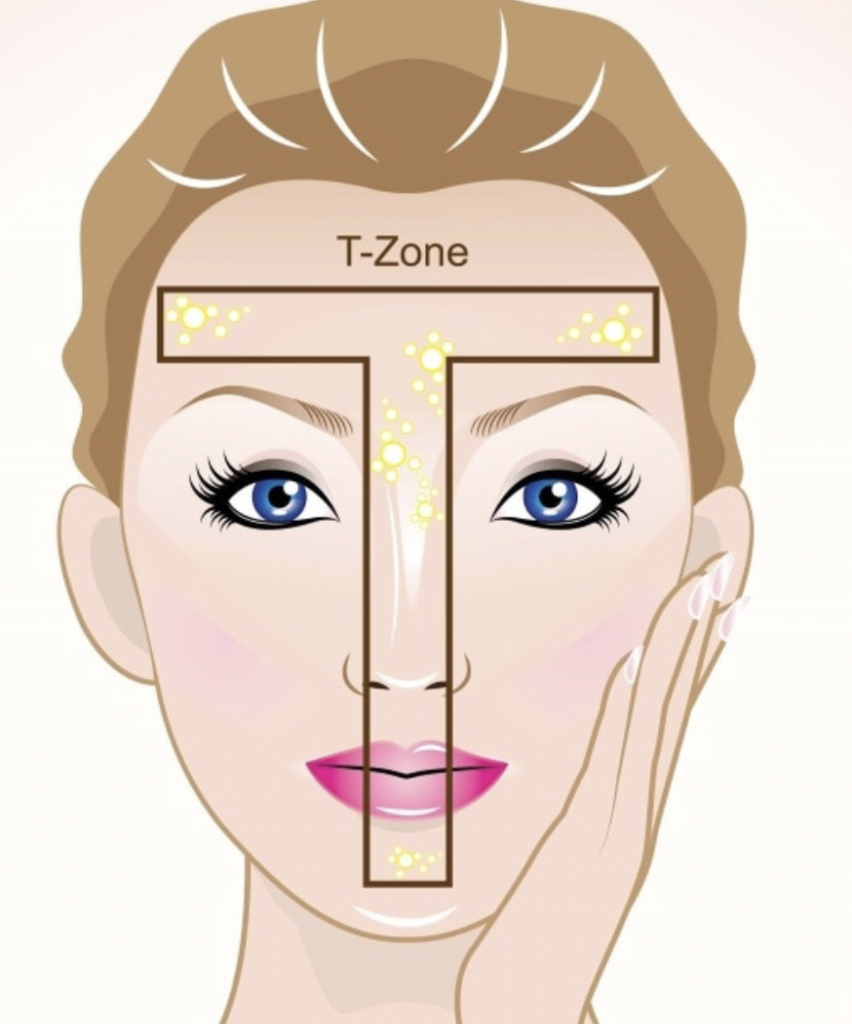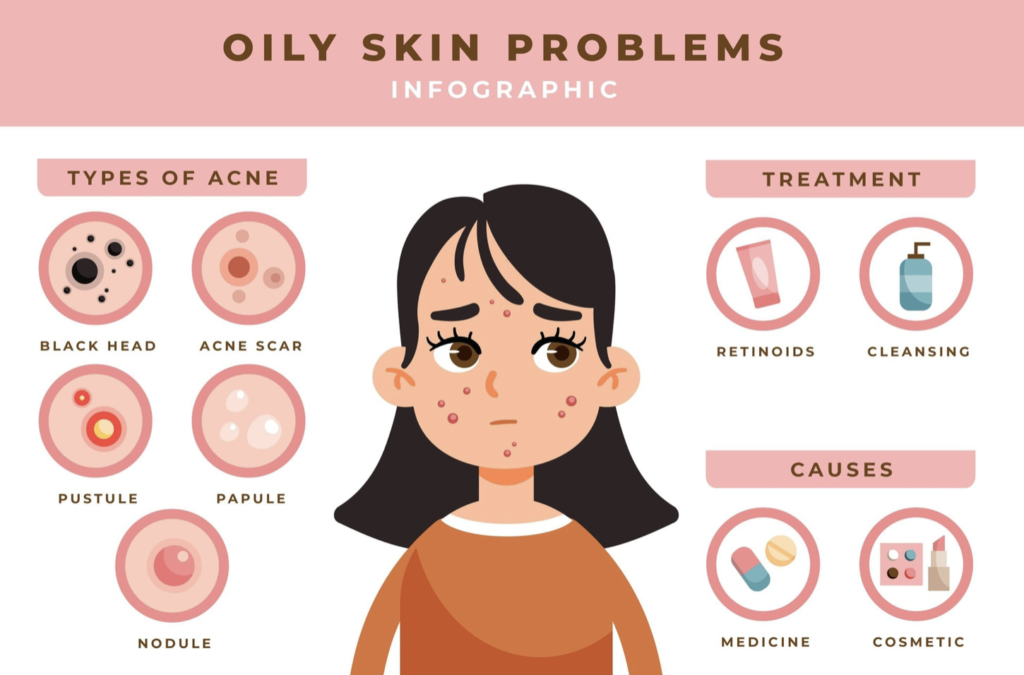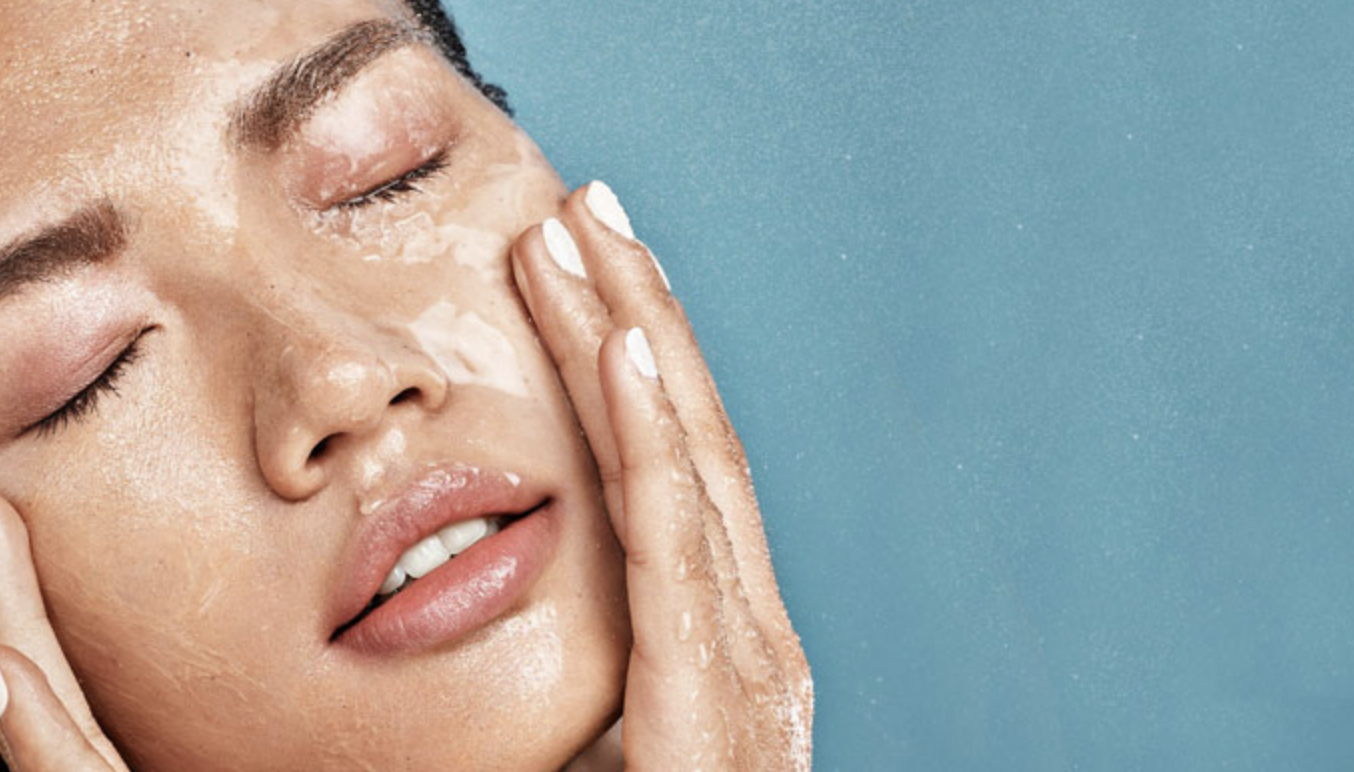“It’s been less than half an hour since I left the house and my face is already oily.”, “The pores on my face seem to be getting worse and worse…”. These skin conditions are probably not unfamiliar to people with oily skin. Although the temperature drops substantially in Winter, people with oily skin are still more likely to develop oil than other skin types.
After sharing the reasons for dry skin and what to look out for, this time we will take you through the causes of oily skin. Help you to find out and establish the proper skincare routine.
Get your skin tested now!
Upon waking up tomorrow, look at the T-zone of your face in the mirror and see which of the following conditions you are more likely to match.
- Not much oil on the T-zone and cheeks, and it even appears dry and tight.
- T-zone is neither oily nor dry, and the cheeks are as soft as just after washing.
- T-zone is obviously oily, but cheeks are dry.
- T-zone is only slightly oily, but cheeks are dry.
- T-zone is highly oily and cheeks are visibly greasy.

T-zone is highly oily and cheeks are visibly greasy
Oily skin is the most apparent skin type to identify compared to other skin types. If you look at the skin the next day and see that the whole face is quite oily, it is almost sure that the skin type is oily. Oily skin is often clogged with dirt and grime due to excessive oil production and old keratin covering the skin’s surface, which can cause acne or pimples.
Oily skin is known for its big pores, blackheads and pimples on the nose with thick, hard, and non-smooth skin, but its high oil production makes it more flexible than dry skin and more resistant to wrinkles. For oily skin, the main focus is on keeping pores unclogged, reducing oiliness and moisturising. Therefore, it is not a good idea not to apply any moisturising products to oily skin.

6 surprising causes of oily skin
1. Genetics
Genetic predisposition is a major factor in the formation of oily skin, which accounts for 80% of cases. The most important source of oil for the skin is produced by the cells themselves. The sebaceous glands secrete and transport oil, which covers the uppermost layer of keratin, lipophosphates and proteins.
When too much oil is produced, it can spill out of the cuticle. This causes oily skin. If one of your parents has oily skin, your sebaceous glands may also be overactive. As we get older, the production of oil decreases and some people even become neuter.
2. Aging
In spite of being naturally oily skin, the sebum production of the skin does decrease as we age. Aging skin loses collagen and sebaceous glands slow down. This is the reason why many people with ageing skin experience dry skin as well. One of the benefits of having oily skin is that you may not show signs of ageing as quickly as dry skin, when fine lines and wrinkles are more visible due to a lack of collagen and sebum.
3. Environment
While genetics and age are the biggest and uncontrollable changes to the skin, living conditions also play an important role in the development of oily skin, with hot, humid climates often contributing to greasier skin.
Compared to Autumn or Winter, Summer has a much higher level of oils on the skin. People living in the Asian region are just as likely to have an oily face than those living in Europe and America.
4. Diet
If you do not want to get your skin greased up, it is better to eat less spicy and fried food. Be particularly aware of excessive intake of saturated fatty acids such as butter, beef, ghee, etc.
For those who like to consume oil, an effective way is to switch the consumption of fish. The sebaceous glands will assist in the secretion of excessive intake, as the non-saturated sebacic acid oil will not clog pores or cause excessive oil production, while at the same time providing proper sebum production to protect the skin.
5. Wrong application of skincare products
Some people mistake combination skin for oily skin and use creams that are highly moisturising. The right products can make a huge difference with each season to the amount of oil left on the face.
6. Face washing habit
Washing your face furiously to remove oil can actually strip your skin of oil, which can cause your sebaceous glands to go into emergency mode where they will produce more oil to compensate for the loss. Therefore, just wash your face every morning and night, which means twice a day.
Is oily skin a good or bad thing?
The common problems of oily skin include enlarged pores, acne and dull skin, which may seem to be a problem, but if you take advantage of the oil production, you can look younger and wrinkle-free than people of the same age! Because of the protective effect of oil on the skin, oily skin is less prone to ageing because of its high oil production.
However, if too much old keratin, dirt and oil is left uncleaned, pores will be enlarged and skin will lose elasticity, leading to acne and other annoying skin problems!
NUWA BeautyLab’s favourite oily-free products will not only hydrate your skin, but also achieve product sustainability and eliminate animal testing brands. Check here to see more.






